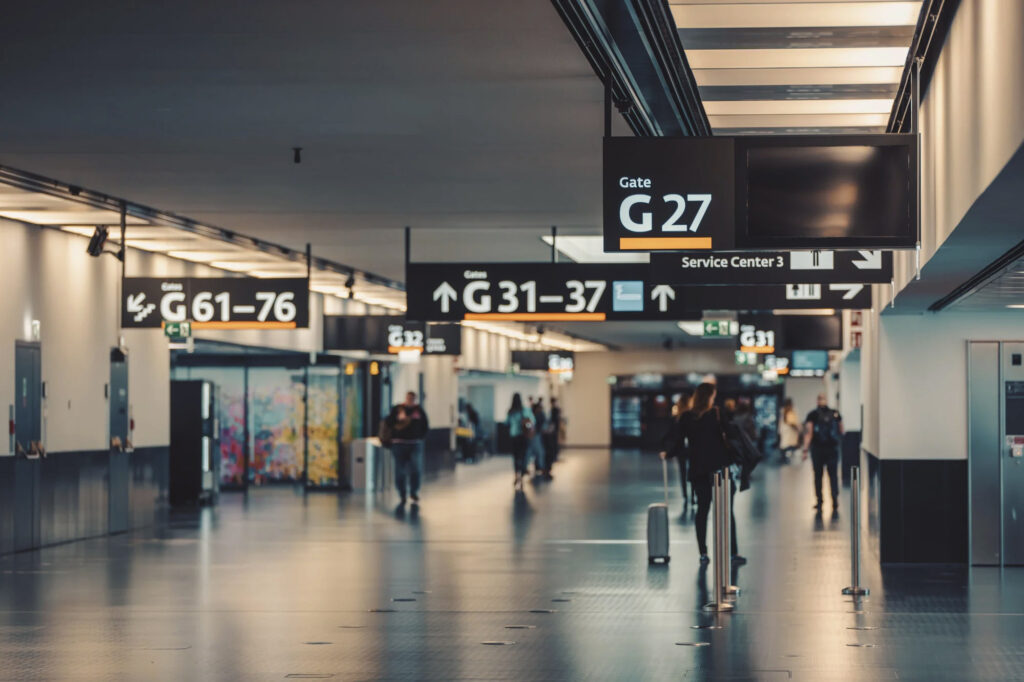Now that we are through the worst of the pandemic and the world has mostly opened up, many of us can’t wait to go abroad again for a holiday. Whether you seek adventure on the slopes or a tranquil beachside retreat, it is crucial to prioritise safety and be prepared for any unforeseen circumstances before you jet off. This article aims to provide valuable insights and guidance on ensuring your well-being while traveling, offering tips on pre-travel preparations and steps to take if an unfortunate incident occurs.
What to do before you travel
It is now more important than ever to think carefully about travel insurance, and what would happen if you were unfortunately injured abroad. The requirements have always varied depending on the country you are visiting outside the European Union, but post-Brexit may also vary depending on which country in Europe you are visiting. Also, remember that you may need specialist travel insurance if you are planning to do ‘adventure activities’ on holiday, such as skiing or windsurfing, are older or have a chronic health condition.
If travelling in Europe, your existing European Health Insurance Card (EHIC), if you have one, will remain valid until the expiry date on the card. If you have rights under the UK-EU Withdrawal Agreement you can apply for a new EHIC. If not, you can now apply for a UK Global Health Insurance Card (GHIC). Both are free of charge and can be applied for up to six months before your current card expires (although bear in mind applications may take longer due to Covid or during times of high demand, such as approaching the summer months).
You can use your card to access medically necessary state-provided healthcare in any EU country or Switzerland. This covers emergency treatment/accident and emergency visits. However, it is important to remember that not all state healthcare is free within the EU and Switzerland, the scheme does not cover repatriation costs, and of course your EHIC or GHIC will give you no rights in non-EU countries. You must therefore always make sure you have travel insurance as well, whichever country you are travelling to.
Driving abroad
If you are taking your car abroad, or hiring a car on arrival, there will be a number of requirements you will need to be aware of. Again, these vary from country to country. Organisations such as the RAC or Greenflag have a lot of very useful information and checklists on their websites, as does the GOV.UK website.
You must of course always remember to take your Great Britain or Northern Ireland driving licence with you, checking that it has not expired, and will not expire whilst you are away. If you are taking your own vehicle, you must also take your log book (V5C) and your motor insurance certificate (remember also to check what your insurance covers whilst you are driving abroad, and whether you need a green card).
Make sure you check whether you need an international driving permit, which will depend on which country you’re visiting and for how long. You don’t need one for driving in the EU or some other European countries if you have a photocard driving licence issued in the UK, but you might if you only have a paper licence or a licence issued in Gibralter, Guernsey, Jersey or the Isle of Man.
Finally, check the driving rules for the country you are visiting. For example, they may require you to have extra equipment such as a reflective jacket and/or warning triangle, headlight converter stickers or a UK sticker. Do remember that even if you are hiring a car, it is your responsibility to check that you have the equipment you need.
What to do if you are injured in an accident or get ill abroad
Should the worse happen and you are injured or get ill abroad, what you can do to get help at the time, and possibly claim for compensation later on if it was someone else’s fault, may differ depending on how you travelled. If you booked a package holiday you will be protected by The Package Travel and Linked Travel Arrangements Regulations 2018 (which still apply after Brexit), and which potentially allow you to bring a claim against your package holiday provider in the English courts.
If you travel independently, organising and booking flights, accommodation and activities separately, you are likely to have to use the legal system of the country where the injury happened. This may mean having to use a local lawyer, and conducting proceedings in the local language, which may increase costs, and may mean you are entitled to a lower level of compensation than in English law. Having said that, there are some general steps you can take which will be helpful if you need to make a legal claim either way:
- If you need help getting medical treatment, you should contact your insurance company immediately on the emergency number provided. If you are on a package holiday, your provider should have someone at your hotel or resort who can help, or emergency contact details, and in some cases it may be appropriate to contact the local British Consul for help. Staff can offer practical advice, and help with finding a doctor, for example;
- If you think your accident or illness was caused by your hotel or accommodation, and you might want to make a claim for personal injury (of course making sure you get appropriate medical treatment first, or get someone else to do it for you), as soon as practicable start gathering as much evidence as you can, as this information will be much harder to get once you have returned home.
If you slipped or tripped, this might be photographs and/or a video of the accident location clearly showing why you fell and with measurements if appropriate, and contact details for any witnesses who saw you fall. Make a note of the date and time of your accident.
If you fell ill with food poisoning or similar, write down what you ate and where for the days leading up to the illness, and if possible find out if anyone else at the same resort or hotel was also ill, and take their contact details.
You, or someone in your party, should report the accident or illness to a Representative of your tour company and/or hotel staff as soon as possible. They should record the incident formally and you should ask for a copy of this.
Finally, make sure you keep your booking details for the trip, and any receipts or invoices for the cost of the holiday;
- Similarly, if you are involved in a road traffic collision abroad, you should if possible gather as much information as you can. If appropriate call the police, and get a copy of their report or a police reference number. Make sure you exchange details with the other party involved, including taking down the other driver’s vehicle details, registration and a contact number. Take photographs of the scene if safe to do so, and gather the names and addresses of any witnesses. Finally, make a note of the date and time the accident happened.
- If you need medical treatment for any injury or illness, try and get copies of your medical records, or at least note down the name and address of the hospital and the dates of your treatment. Also, keep receipts or invoices for any treatment and medication, and for any travel expenses such as taxi fares.
It is important to get legal advice as soon as possible, to help you in knowing what information to gather, and because the time limit for starting a claim may be shorter than the time limit under English law (which is usually three years from the date of the accident). Even if you are unsure whether your accident or illness is covered by The Package Holiday Tour Regulations, it is still worth getting advice and guidance.
Our expert solicitors can guide you, so please don’t hesitate to contact us today for an initial free consultation.
Our personal injury team has expertise in dealing with accidents and illness abroad. We will utilise our experience to make sure that we achieve the best outcome possible for you. Our aim is to take away some of the stress you are feeling so you can recover from your injuries or illness as quickly as possible.
For more information and advice, get in touch with a member of our team today.



















